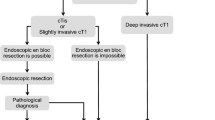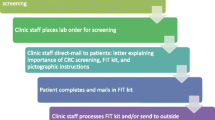Abstract
Hispanics are an underserved population in terms of colorectal cancer (CRC). CRC is the second leading cause of cancer incidence among Hispanic men and women, and Hispanics have lower screening rates than non-Hispanic whites. The overall purpose of this project was to provide CRC information, education, and fecal occult blood test (FOBT) kits to Hispanics in a rural three-county region of Washington State. We held a series of 47 community health fair events that incorporated the use of a giant inflatable, walk-through colon model with physical depictions of healthy tissue, polyps, and CRC. We used a pre/post-design to look for changes in familiarity with CRC before and after walking through the colon among adults aged 18 and older (n = 947). McNemar’s test analysis indicated significant differences in the distribution of the percentage of correct participant responses to CRC-related questions from pre- to post-test after an educational tour of the colon. Results from logistic regression analysis identified multiple participant characteristics associated with self-reported likelihood of being screened for CRC in 3 months following post-test. We distributed 300 free FOBT kits to be analyzed at no charge to the end user and to attendees aged 50 and older who toured the inflatable colon; 226 FOBT kits (75.3 %) were returned for analysis. The use of the inflatable colon was an innovative way to attract people to learn about CRC and CRC screening modalities. Furthermore, the response to our distribution of FOBT kits indicates that if given the opportunity for education and access to services, this underserved population will comply with CRC screening.
Similar content being viewed by others
References
American Cancer Society (2013) Cancer Facts & Figures 2013. American Cancer Society, Atlanta. Available at: http://www.cancer.org/acs/groups/content/@epidemiologysurveilance/documents/document/acspc-036845.pdf. Accessed 30 June 2014
American Cancer Society (2012) Cancer Facts & Figures for Hispanics/Latinos 2012-2014. American Cancer Society, Atlanta. Available at: http://www.cancer.org/acs/groups/content/@epidemiologysurveilance/documents/document/acspc-034778.pdf. Accessed 30 June 2014
Howlander N, Noone AM, Krapcho M, Garshell J, Neyman N, Altekruse SF, Kosary CL et al (2012) SEER Cancer Statistics Review (CSR) 1975-2010. National Cancer Institute, Bethesda
Edwards BK, Ward E, Kohler BA, Eheman C, Zauber AG, Anderson RN, Jemal A et al (2010) Annual report to the nation on the status of cancer, 1975-2006, featuring colorectal cancer trends and impact of interventions (risk factors, screening, and treatment) to reduce future rates. Cancer 116(3):544–573. doi:10.1002/cncr.24760
Wang J, Moehring J, Stuhr S, Krug M (2013) Barriers to colorectal cancer screening in Hispanics in the United States: an integrative review. Appl Nurs Res 26(4):218–224. doi:10.1016/j.apnr.2013.08.005
Fan L, Mohile S, Zhang N, Fiscella K, Noyes K (2012) Self-reported cancer screening among elderly Medicare beneficiaries: a rural-urban comparison. J Rural Health 28(3):312–319. doi:10.1111/j.1748-0361.2012.00405.x
American Fact Finder (2010) 2010 census data. http://factfinder2.census.gov/faces/nav/jsf/pages/index.xhtml. Accessed 4 Mar 2012
Pew Research Center (2011) Demographic profile of Hispanics in Washington, 2011. http://www.pewhispanic.org/states/state/wa/. Accessed 5 Mar 2014
Agresti A (2013) Categorical data analysis, 3rd edn. Wiley, Hoboken
Fay MP (2010) Two-sided exact tests and matching confidence intervals for discrete data. R Journal 2(1):53–58
R Development Core Team (2014) R: a language and environment for statistical computing. R Foundation for Statistical Computing, Vienna, Austria. http://www.R-project.org/
Jandorf L, Ellison J, Villagra C, Winkel G, Varela A, Quintero-Canetti Z, Castillo A, Thélémaque L, King S, DuHamel K (2010) Understanding the barriers and facilitators of colorectal cancer screening among low income immigrant Hispanics. J Immigr Minor Health 12(4):462–469. doi:10.1007/s10903-009-9274-3
Jerant AF, Fenton JJ, Franks P (2008) Determinants of racial/ethnic colorectal cancer screening disparities. Arch Intern Med 168(12):1317–1324. doi:10.1001/archinte.168.12.1317
Moralez EA, Rao SP, Livaudais JC, Thompson B (2012) Improving knowledge and screening for colorectal cancer among Hispanics: overcoming barriers through a PROMOTORA-led home-based educational intervention. J Cancer Educ 27(3):533–539. doi:10.1007/s13187-012-0357-9
Shokar NK, Carlson CA, Weller SC (2008) Factors associated with racial/ethnic differences in colorectal cancer screening. J Am Board Fam Med 21(5):414–426. doi:10.3122/jabfm.2008.05.070266
Frederiksen BL, Jorgensen T, Brasso K, Holten I, Osler M (2010) Socioeconomic position and participation in colorectal cancer screening. Br J Cancer 103(10):1496–1501. doi:10.1038/sj.bjc.6605962
Goldberg D, Schiff GD, McNutt R, Furumoto-Dawson A, Hammerman M, Hoffman A (2004) Mailings timed to patients’ appointments: a controlled trial of fecal occult blood test cards. Am J Prev Med 26(5):431–435. doi:10.1016/j.amepre.2004.02.009
Segnan N, Senore C, Andreoni B, Arrigoni A, Bisanti L, Cardelli A, Castiglione G et al (2005) Randomized trial of different screening strategies for colorectal cancer: patient response and detection rates. J Natl Cancer Inst 97(5):347–357. doi:10.1093/jnci/dji050
Dwyer DM, Groves C, Hopkins A, Keelaghan E, Shebl FM, Andrews B, Bienia M, Steinberger E (2012) Experience of a public health colorectal cancer testing program in Maryland. Public Health Rep 127(3):330–339
Potter MB, Phengrasamy L, Hudes ES, McPhee SJ, Walsh JME (2009) Offering annual fecal occult blood tests at annual flu shot clinics increases colorectal cancer screening rates. Ann Fam Med 7(1):17–23. doi:10.1370/afm.934
Potter MB, Walsh JME, Yu TM, Gildengorin G, Green LW, McPhee SJ (2011) The effectiveness of the FLU–FOBT program in primary care: a randomized trial. Am J Prev Med 41(1):9–16
Tu SP, Taylor V, Yasui Y, Chun A, Yip MP, Acorda E, Li L, Bastani R (2006) Promoting culturally appropriate colorectal cancer screening through a health educator. Cancer 107(5):959–966. doi:10.1002/cncr.22091
Walsh JME, Gildengorin G, Green LW, Jenkins J, Potter MB (2012) The FLU-FOBT program in community clinics: durable benefits of a randomized controlled trial. Health Educ Res 27(5):886–894. doi:10.1093/her/cys063
Gellert K, Braun KL, Morris R, Starkey V (2006) The ‘Ohana Day Project: a community approach to increasing cancer screening. Prev Chronic Dis 3(3):A99
Wallace SP (2012) Measuring outcomes & selecting effective interventions to advance the National Prevention Strategy. In Gerontologist. Oxford University Press, Cary
Feufel MA, Schneider TR, Berkel HJ (2010) A field test of the effects of instruction design on colorectal cancer self-screening accuracy. Health Educ Res 25(5):709–723. doi:10.1093/her/cyq015
Parente F, Marino B, DeVecchi N, Moretti R (2009) Faecal occult blood test-based screening programme with high compliance for colonoscopy has a strong clinical impact on colorectal cancer. Br J Surg 96(5):533–540. doi:10.1002/bjs.6568
Ahmed NU, Pelletier V, Winter K, Albatineh AN (2013) Factors explaining racial/ethnic disparities in rates of physician recommendation for colorectal cancer screening. Am J Public Health 103(7):e91–e99. doi:10.2105/ajph.2012.301034
Liss DT, Baker DW (2014) Understanding current racial/ethnic disparities in colorectal cancer screening in the United States: the contribution of socioeconomic status and access to care. Am J Prev Med 46(3):228–236. doi:10.1016/j.amepre.2013.10.023
Byrd TL, Wilson KM, Smith JL, Coronado G, Vernon SW, Fernandez-Esquer ME, Thompson B, Ortiz M, Lairson D, Fernandez ME (2013) AMIGAS: a multicity, multicomponent cervical cancer prevention trial among Mexican American women. Cancer 119(7):1365–1372. doi:10.1002/cncr.27926
Duggan C, Coronado G, Martinez J, Byrd TL, Carosso E, Lopez C, Benavides M, Thompson B (2012) Cervical cancer screening and adherence to follow-up among Hispanic women study protocol: a randomized controlled trial to increase the uptake of cervical cancer screening in Hispanic women. BMC Cancer 12(1):1–6. doi:10.1186/1471-2407-12-170
Smith RA, Cokkinides V, Brawley OW (2009) Cancer screening in the United States, 2009: a review of current American Cancer Society guidelines and issues in cancer screening. CA Cancer J Clin 59(1):27–41. doi:10.3322/caac.20008
Redwood D, Provost E, Asay E, Ferguson J, Muller J (2013) Giant inflatable colon and community knowledge, intention, and social support for colorectal cancer screening. Prev Chronic Dis 10:E40. doi:10.5888/pcd10.120192
Acknowledgments
We would like to thank all the participants who agreed to take part in this study as well as our community partners who hosted the inflatable colon. We would also like to thank all the promotores who were involved in leading tours through the inflatable colon. This project was supported by grant numbers 5U54CA153502 and 3P30CA015704-37S5 from the National Cancer Institute (NCI). The content is solely the responsibility of the authors and does not necessarily represent the official views of the NCI or the National Institutes of Health.
Ethical Standards
This project has been approved by the Fred Hutchinson Cancer Research Center Institutional Review Board Office and has therefore been performed in accordance with the ethical standards laid down in the 1964 Declaration of Helsinki and its later amendments. All participants gave their informed consent prior to their inclusion in the study.
Conflict of Interest
The authors declare that they have no conflict of interest.
Author information
Authors and Affiliations
Corresponding author
Rights and permissions
About this article
Cite this article
Briant, K.J., Espinoza, N., Galvan, A. et al. An Innovative Strategy to Reach the Underserved for Colorectal Cancer Screening. J Canc Educ 30, 237–243 (2015). https://doi.org/10.1007/s13187-014-0702-2
Published:
Issue Date:
DOI: https://doi.org/10.1007/s13187-014-0702-2




